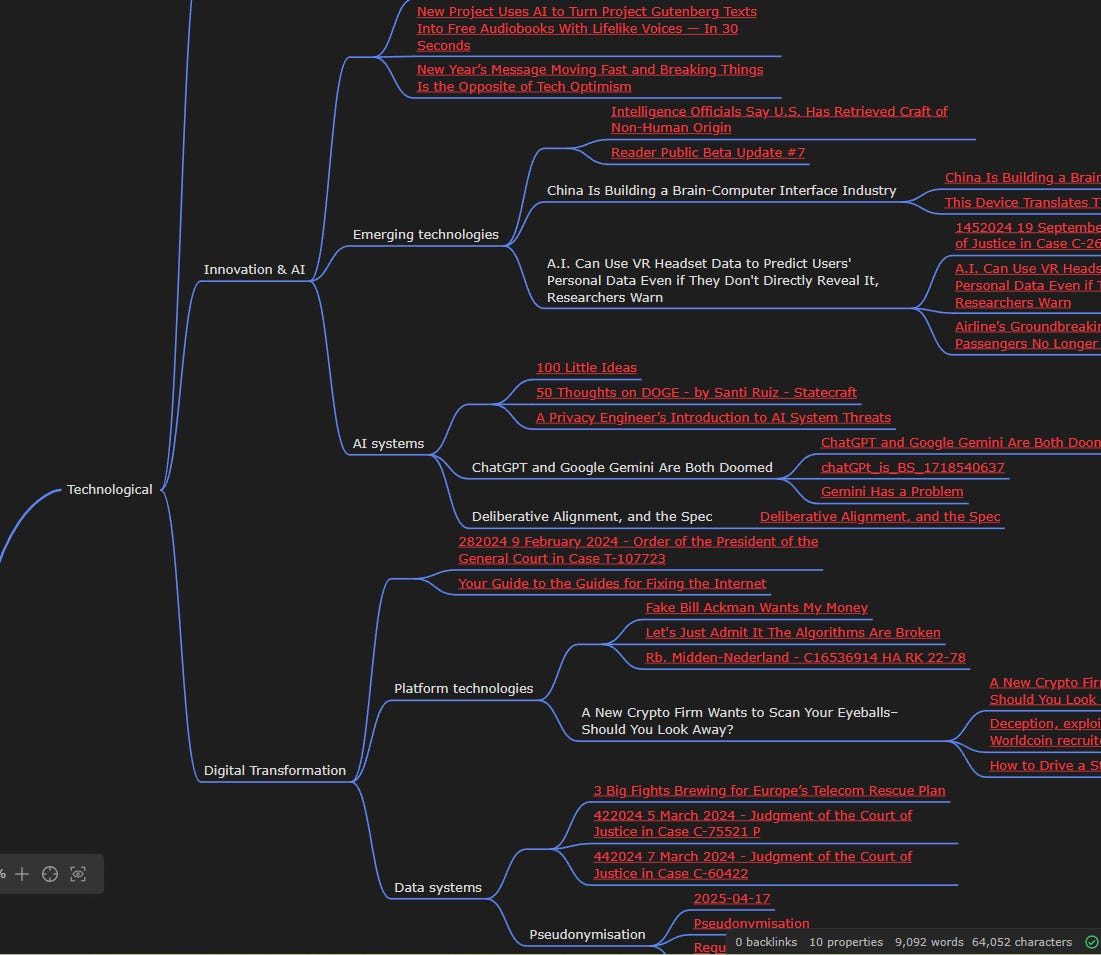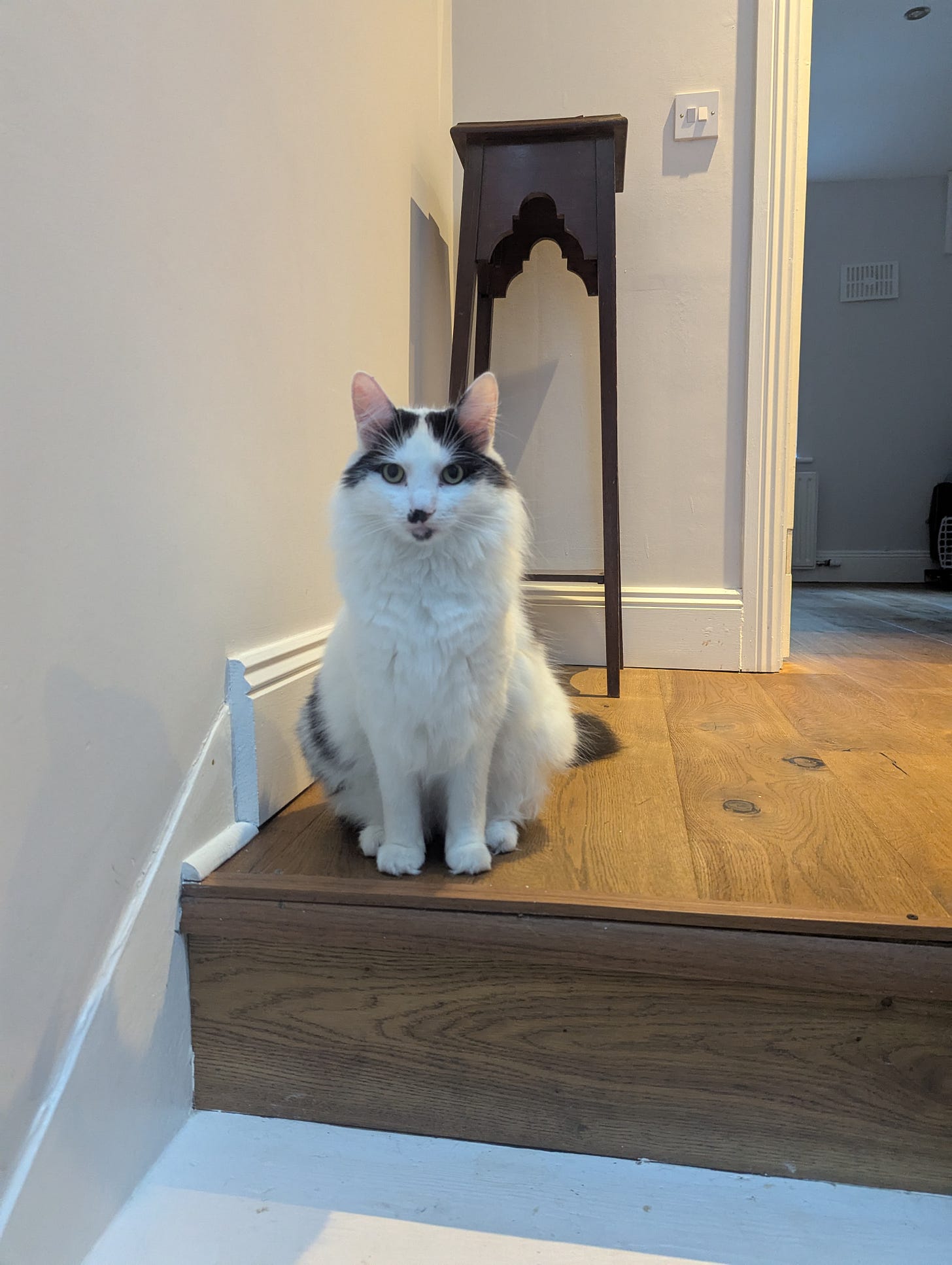Who Doesn't Love Change ?
Just a heads up to the change-averse: I'm shifting focus on this blog. I won't be upset if you decide it's not for you any longer.
Right.
So, some of you have noticed (and poked me on LinkedIn and elsewhere) that this blog has been rather quiet as of late. Some of you might have also noticed that I disabled my paid option and wasn’t charging a monthly / yearly subscription anymore.
The answer on why is a combination of three things that can be rounded down to:
Shiny object syndrome;
Overwhelming anxiety about *waves hands wildly and motions to the current state of the world*;
An ever-growing sense of hopelessness, dread, and nihilism.
This has happened before, and while the circumstances have differed (medical diagnosis, economic uncertainty, failed relationship, failed career choices, the complete and total destruction of America, the precarity of life in general), the outcome tends to be the same: I mope and pout for a bit, and then pivot to something new.
In this case, I’m shifting the focus of my writing, and this blog. It’s going to be less a critique on the current state of things, and more an exploration of possibilities and scenarios for the future. And it won’t just be on privacy, but will also include larger trends related to the law, society, technology (especially emerging technologies), and how they all intertwine.
Forecasting (But Not Predicting) the Future
In March, I wrote a dispatch on my time at South by Southwest where I did a little foreshadowing:
I mentioned how there were a surprising number of interesting, thought-provoking sessions, and one that really stuck with me was a series of 101 Courses held by the Future Today Strategy Group (FTSG) on Strategic Foresight.
Mark Palatucci, who presented one of the sessions I attended, was both entertaining, and a wealth of knowledge. He walked us through the history of strategic foresight, how it differs from the broader category of futurism. As I wrote in my Tl;Dr:
‘Futurism’ is anything and everything that involves thinking about the future, and frequently involves talking out one’s ass.
Whereas ‘Strategic Foresight’ is a data-driven, practice for developing plausible future scenarios based on current signals & data to inform decisions. It’s heavily reliant on scenarios and examples to motivate behavior. Strategic foresight is a sub-category within the larger futurism space.
I plan to dig into strategic foresight more, and see how I leverage it as a tool for anticipating future trends, based on the decisions and choices we make now. Particularly, decisions related to legal & regulatory policy, corporate concentration, the rise of the network state and the Nerd Reich, data centralization, and other signals that impact privacy, human autonomy, and individual rights.
For the past few months, I’ve been in a holding pattern on how to begin, and what would need to change to make this successful.
In the background, I also began working on a few longer-term projects:
I built a framework and process for filing data erasure/right-to-be-forgotten requests at scale, using my password manager, a Google sheet, a few scripts, and some automation to make erasure requests with over 700 companies who I had at one time or another, given my data to. I also tracked the results.
This is still an ongoing process, and I will write on it more in the next month or so. I’ll also be presenting some of my discoveries at the Estonian Data Protection Association Conference on October 9 in Tallinn.
Of the 385 requests (out of around 500-600 total I need to complete), 135 of the companies (35%) actually complied. 12 (~1%) had no data, and 249 (64%) just fail at the basics of honoring an erasure request.
I have learned a lot about what it means to be a data subject, and how badly most companies are at following the law.
I have been following the growth of the surveillance state under the current administration. It is not good, and the tools that they are using to build out their authoritarian empire should worry everyone. I have a potential solution, but this will take some number of months / years to implement. Until then, I’ve spent a great deal of effort getting my images removed from the internet.
I’ve also been working on some exciting coding projects using Claude Code, including a new shiny Obsidian plugin for creating mindmaps, and a customizable RSS-like reader. It helps me make sense of the sheer volume of information out there, and to start to identify trends and future movements.
Here’s an example of what my Mindmap tool can do…
The goal of the mindmap + RSS tools is to help me stay informed and build better scenarios for future outcomes. It includes an AI-based classifier and quite a few manual tweaks, to automatically group different information into larger trends/categories based on a well-known business forecasting model known as STEEPLE.
I’ve started to participate in various forecasting challenges (Good Judgment, Metaculus), so that I can refine my skills in real-time, with real-world events. If you’re curious, I am privacat on both, so you can follow my predictions and hold me to account. If I turn out to get some of these right, I’ll also start doing the
gamblingpaid prediction market ones like Kalshi and Polymarket.I’m working on some general self-improvement, including trying to learn Dutch & improving on my skills in Strategic Forecasting.
I’m writing a dystopian novella, because it’s cheaper than therapy.
I’ll also be moving to the Netherlands in November!?!
Ok, Weirdo. Should I Still Keep Reading?
So, what that means is, a lot of what I’ll be writing about and finding interesting will be changing. I go through these sorts of re-shifts every 5-7 years, and while I am still notionally doing privacy work for clients, and will incorporate privacy/civil liberties/legal analysis in my forecasting, I won’t be doing the deep-divey stuff on the latest EDPB non-decisions, the brittleness of the current legal system, or the current spate of terrible privacy disasters.
Or rather, I won’t be writing about that stuff on this blog (for that, you might go check out the Lucid Privacy Group Bulletins).
So, if weird speculative forecasting, interesting future privacy / liberties / legal & technical shifts, societal changes and the like aren’t really your bag, you might want to unsubscribe. It’s ok — I won’t take it personally.
Alternatively, if this sounds interesting to you and you haven’t subscribed already, please consider doing so, or sharing this with someone who might be interested.
I will still include obligatory cats though, because I’m not a monster.
PS: If there are some good forecasting/futurism/forward-thinking feeds/publications you think I should be reading, please let me know! I can add it to my growing list of feeds.
Obligatory Cat Photo: Bunsen




I'm really glad for this update ☺️, and looking forward to your new content. I think we have many interesting conversations ahead of us!
I guess the Substack algorithm did its thing at the right time, cause I’m not that big on privacy/data but big on futurism. You have a new reader!